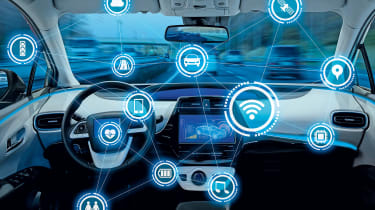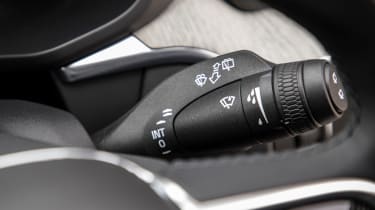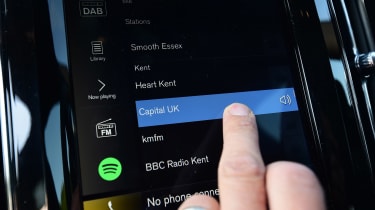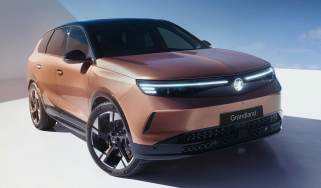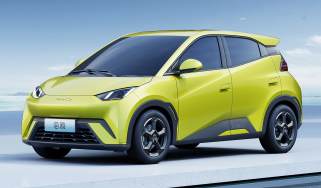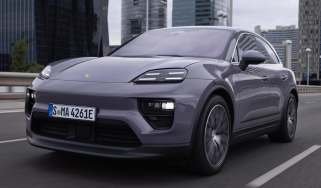In-car data: how the click of a switch shapes driving tech
We look into the world of ‘connected cars’, where the very touch of a button creates opportunity for business
The next time you turn on your windscreen wipers or switch radio station, consider the impact it has. If you’re in an old car, it’ll be minimal. If you’re in a new, ‘connected car’, this activity is likely to be noted by one of hundreds of sensors on board, sent to the maker which passes that info to a third party developing a driving app.
Big data is revolutionising the car industry, giving accurate traffic reports and cutting the emergency services’ accident response times. Yet drivers are leading this transition; they’re the ones generating all of this data. Auto Express spoke to one of the firms gathering and selling data generated by the latest cars to see how it works.
• Best sat-nav apps for your phone
“To get an idea of the scale of things, consider the first space shuttle,” says Lisa Joy Rosner, chief marketing officer at tech start-up Otonomo. “It had 500,000 lines of code to break the sound barrier. In 2020 there will be cars that contain 100 million lines of code.”
Models capable of warning owners of traffic jams ahead, service requirements and even alerting emergency services to accidents are already on the market. By 2021, experts suggest up to 98 per cent of new cars will be connected, so they’ll be transmitting data from hundreds of sensors in real time. But it’s what makers do with this information that is important for drivers to understand.
Otonomo is one of several start-ups specialising in gathering and selling data obtained from cars. Already working with 10 manufacturers, it receives real-time data from over two million cars globally. The Israeli start-up specialises in collecting, ‘cleaning’ and anonomysing this data and then selling it on for app developers and other third parties.
The result is services such as on-demand refuelling, where parked cars are topped up with fuel by a specialist provider accessing their location and remotely unlocking the fuel cap.
Interestingly, no brand or even model shares the same data language. “We’re the Rosetta Stone of connected car data,” Rosner tells Auto Express. “Each make and model has a different language. We unify that data so it’s one language and in one place for all manufacturers.”
A single car can come with anywhere from five to 500 different data points that are of use to manufacturers and developers, each of which is valuable. Drivers turning on their windscreen wipers could act as a signal to weather stations in the future that it’s raining or snowing, and they can accurately change their forecasts. Changing a radio station can let broadcasters know which music is liked and disliked.
“In the same way, if a car gets into an accident in the future, emergency services and hospital emergency rooms will be alerted to the G-forces of the accident, which airbags were detonated, as well as where the accident took place,” explains Yael Rivkind, director of partnerships and strategic initiatives at Otonomo. “This will help them better prepare for any incoming casualties.”
But all this changes the way drivers should be perceived. As with users of services like Facebook or Instagram, they are now participating in what is called ‘productive consumption’. By driving, using the radio and even turning on windscreen wipers in the rain, drivers are creating value for other companies without being compensated for it. Otonomo counters that drivers will be offered more tailored services.
Data privacy also lies at the heart of the debate. Before General Data Protection Regulation (GDPR) gave citizens control over their data, drivers would sign over their rights when buying the car. “This was usually buried deep in the document,” says Rosner. “Now [with GDPR] the use of driver data must be front and explicitly stated in the contract.”
AA president Edmund King says drivers should still be the ones “who decide if they want to share” their data or not, and that simply agreeing to share it is not enough. Otonomo has already launched a Consent Management Hub that allows drivers to see which aspects of their data is shared with third parties, so they can choose which information is kept private.
A Sunday drive may no longer be a solitary experience in the future. As with internet browsing, any push of a button will generate value somewhere.
What are your thoughts on sharing your driving data, are you for or against?
